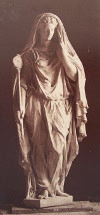
In March 1964, David Threlfall sent a unique request to bookmaker William Hill: “I’d like to bet £10 that a man will set foot on the surface of the moon before the first of January 1970.”
He’d heard President Kennedy’s 1961 address challenging the United States to put a man on the moon by the end of the decade, and “I thought if a bookmaker was prepared to offer reasonable odds it would be a commonsense bet.”
The bookmaker disagreed and put the odds at 1,000 to 1. Threlfall accepted, and the bet was placed on April 10.
As the Apollo program advanced, the odds began to drop, and people began to offer Threlfall thousands of pounds for his betting slip. He held on to it, though, and when Neil Armstrong set foot on the moon in 1969, he received the reward for his forethought — a check for £10,000.



